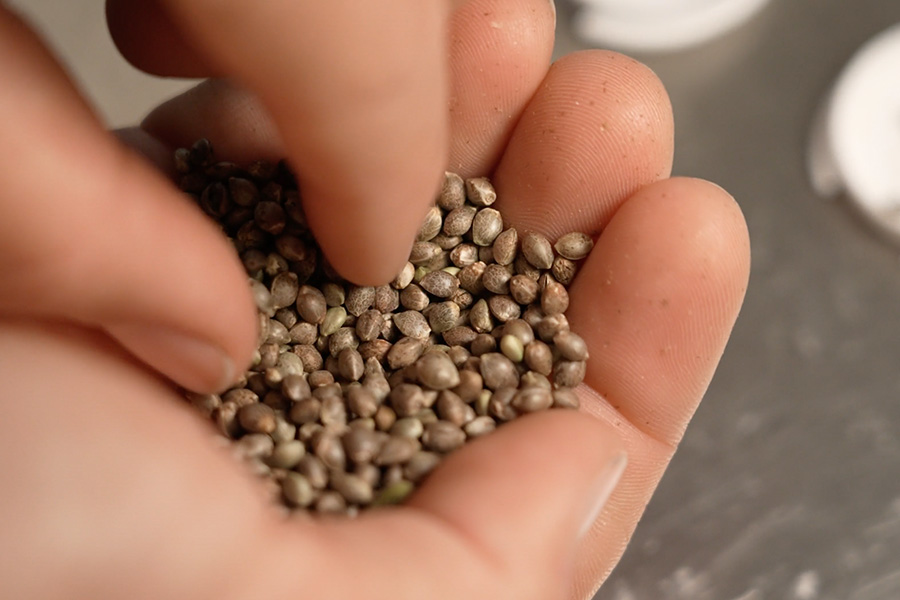Seed propagation is the prevailing and economical method for propagating annual crops, including cannabis. However, cannabis plants, being obligate outcrossers and highly heterozygous, present challenges in achieving uniformity. Breeders, including Atlas Seed, are actively enhancing uniformity through practices like inbreeding parent lines and marker-assisted breeding. Substantial progress has been made in recent years. However, the presence of male plants remains a significant issue in cannabis seed production due to the plant’s de facto dioecious nature. This raises the question: what is a feminized seed?
To address this concern, seed companies have developed the technique of producing feminized cannabis seeds. Female plants are reversed to produce male flowers that generate pollen carrying only the X chromosome. The progeny resulting from these feminized seeds are expected to be 100% female, although in reality, the rate is around 99.99% female. As a result, approximately 1 out of every 1500-2000 plants may still turn out to be male.
Advantages of Seed
Growing plants from seeds offers several advantages over using clones. One major benefit is that seed-grown plants tend to exhibit greater vigor and resilience. This is due to the development of a robust tap root, which provides a strong anchor for the plant. Additionally, seeds are not susceptible to transferring pests like clones can. Moreover, treating certain seeds for viral and fungal pathogens further enhances their disease resistance. Another advantage is that propagating plants from seeds makes the process easier, requiring minimal or no up-potting before transplanting the seedlings into the field after hardening off.
Maturation of Seed Plants
Unlike clones, which are already sexually mature, plants grown from seed require time to reach maturity. The transition of leaves from opposite to alternate arrangements often indicates sexual maturity.
Even when the light cycle outside falls within the range that typically triggers flowering (less than 14 hours of daylight), a seed-grown plant will not begin flowering until it reaches its own maturity stage. This means that the plant’s response to the light cycle is based on its internal biological timeline rather than external factors alone.
